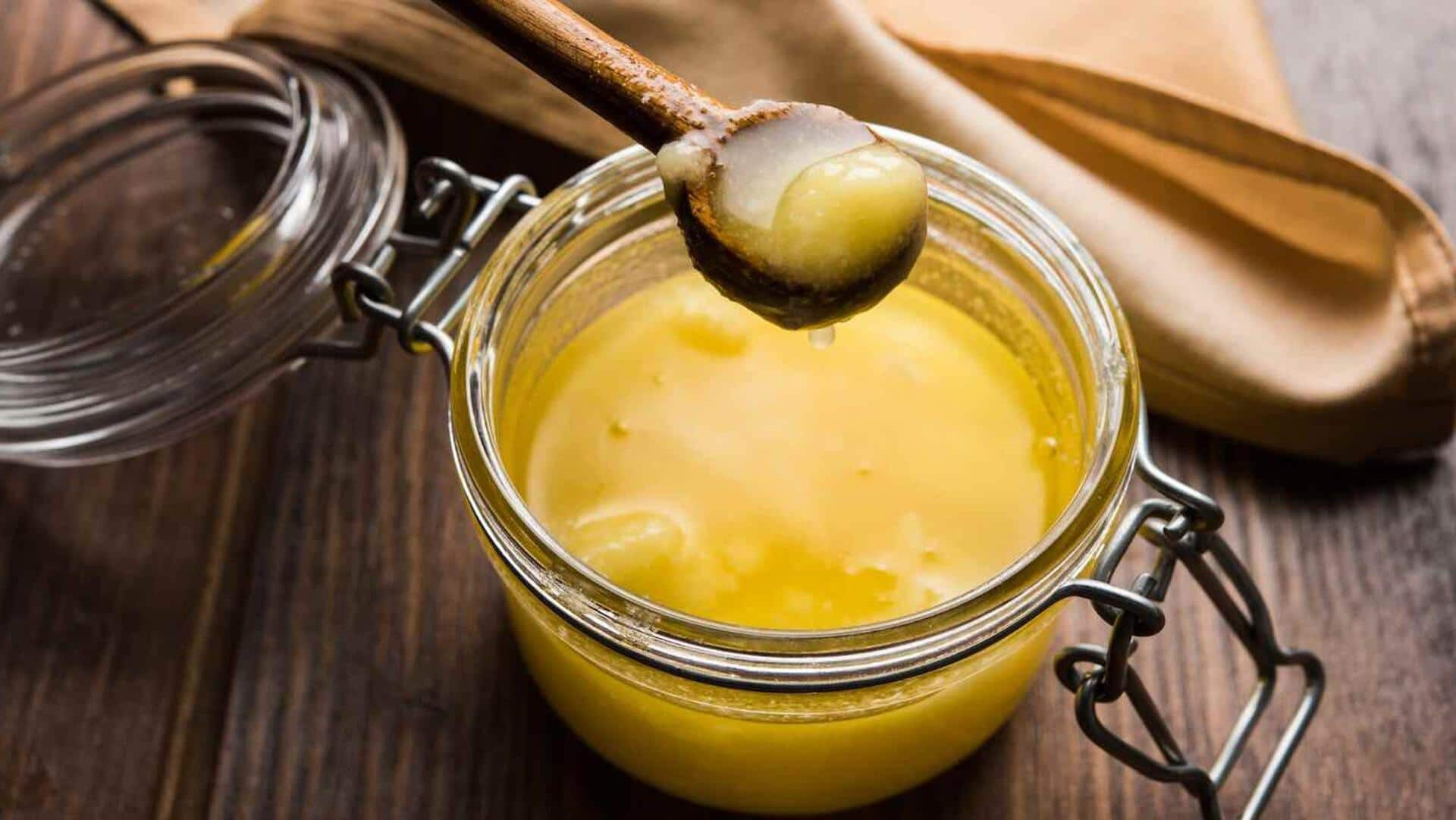
The timeless voyage of ghee's golden essence
What's the story
Ghee holds a special place in the hearts and kitchens of Indians. This clarified butter has been a staple in Indian cuisine for centuries. From Ayurvedic practices to modern-day cooking, ghee's journey through time is a testament to its enduring appeal and versatility. In this article, we explore the history, production, health benefits, and culinary applications of ghee, providing a glimpse into why this golden nectar is cherished across generations.
History
A deep dive into ghee's origins
Ghee originated over 5,000 years ago on the Indian subcontinent. It was highly valued not only for its culinary applications but also for its medicinal properties in Ayurveda. Sacred scriptures cite ghee as a crucial component of religious ceremonies and traditional medicine. Its importance goes beyond that of a simple food item, encompassing cultural and spiritual identity.
Production
The art of making ghee
The art of ghee-making Ghee is made by slowly simmering butter to evaporate the water content and separate milk solids. What's left is pure fat - rich, nutty, and golden. While cow's milk is traditionally used to make ghee, buffalo milk can also be used. The secret to great ghee is the quality of milk and the care taken during simmering.
Nutrition
Nutritional profile unveiled
Ghee is packed with health-promoting vitamins A, D, E, and K2, and beneficial fatty acids like conjugated linoleic acid (CLA). Unlike many cooking oils that break down at high temperatures, ghee's high smoke point allows it to withstand the heat of frying and sauteing without forming harmful free radicals. Plus, it's lactose-free, so even those with dairy sensitivities can enjoy its rich flavor.
Culinary uses
Culinary gold: Cooking with ghee
Ghee's unique aroma and flavor profile have the ability to elevate both sweet and savory dishes across various cuisines, extending beyond its Indian roots. It can be used in baking, or to prepare rice dishes such as biryani, or desserts like halwa. Global chefs are experimenting with ghee in modern recipes, drawn to its richness that imparts a unique depth of flavor to their dishes.
Storage
Tips on storing ghee for longevity
To keep ghee fresh and extend its shelf life, store it in an airtight container and keep it away from direct sunlight or moisture, which can cause it to spoil. At room temperature, ghee will stay fresh for up to three months. If you refrigerate it, it can last up to a year without losing any quality or taste.